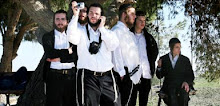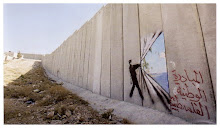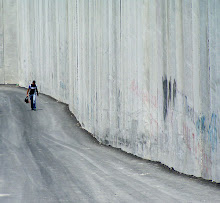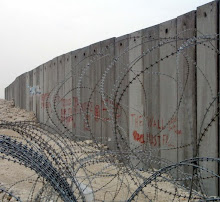The waste of Israel's Gaza war
By Sherine Tadros, Al Jazeera's correspondent in Gaza June 27, 2009
Exactly six months ago--minutes before Israel launched its war--I was sitting in a coffee shop in Gaza City's main square.
Six months later, here I am again. At the same table, ordering the same drink from the same waiter who is talking about the same thing--no fuel, no electricity, no goods.
The untouched rubble of Israel's onslaught is becoming part of Gaza's landscape. Nothing here has changed, except the weather.
In 23 days, Israel's military managed to damage 47,000 homes in Gaza. Tens of thousands of people are still living in tents, just as I left them months ago, because Israel continues to block the entrance of building material.
The winter has come and gone, and now the blistering heat is their new challenge.
The homeless remain stranded and, it seems, forgotten.
The international community pledged $4bn to rebuild Gaza after the war--a publicity stunt says one lady I spoke to who lives with her children in a tent by the side of the rubble once their home.
Gaza is often compared to a prison--but even murderers and rapists are entitled to a roof over their heads, a toilet, food--and if their cell is damaged, they are moved to another one.
Article One of the Universal Declaration of Human Rights says that all human beings are born free and equal in dignity and rights. In Gaza, like so many other international principles, that rule does not apply.
After the war, Israel left 75 tonnes of depleted uranium in the soil, while half of Gaza's hospitals were demolished. And that's just the infrastructure.
At least 1,440 Palestinians were killed by Israeli soldiers and artillery whose aim, the establishment still maintains, was to neutralise Hamas fighters.
Of those killed, 431 were children and 114 women, according to Palestinian sources.
But it's not the dead that I feel sorry for anymore, it's the living.
I met the Deeb family after the war. My colleague, Ayman Mohyeldin, had spoken about them on air during the offensive. On January 6, as 21 members of the family huddled together in the garden outside their home, Israeli missiles struck.
Their home was next to a UN school that had been converted into a shelter. Israel says it was after Palestinian fighters hiding out near the school.
Eleven members of the Deeb family from across three generations died within seconds, from three-year-old Nour to her 76-year-old grandmother.
Hussein Deeb described the moment to me. "I couldn't see when it first happened, I felt around me and put my hand on my sister-in-law, she was holding her daughter, three-year-old Nour's hand," he said.
"They weren't moving so I struggled to pull their hands apart, to take Nour to get help. But they were dead."
The only time Hussein smiled was when he was telling me about Nour. He remembers how he used to repeat the stories of what his niece did and said that day to his friends and family and they would all laugh.
Now, the house is empty. All signs of joy and life replaced by a sad silence.
Ziad Deeb is 23 years old. He lost his father, two brothers, a sister and six cousins that day. Ziad also lost both his legs in the blast.
I asked him how he could continue and he shook his head, saying; "I have to overcome this, work harder at school."
What he's lost in physical capability he is determined to make up with mental strength.
Both of them have given their testimonies to the UN fact-finding mission which is due to report in August.
"What compensation are you expecting?" I asked, but when I saw the sadness their eyes I realised the foolishness of my question.
People here are not asking to be given anything, they are not even expecting a single Israeli soldier to face war crimes charges for what they have done--past experience has made people here more realistic than that.
What they want is for the world to know their story and maybe a few people to remember it.
Wars are always a waste--of life, of effort, of money. But they can sometimes mean the end of something or the beginning of a new phase.
Israel said its aim was to stop Hamas's aggression. It didn't.
Hamas says it withstood Israel's military might--but at what price?
During the war, people here would talk about whether this means something will change. Endure the next few weeks and something better may prevail I heard people say.
But nothing has got better here, nothing has changed ... except perhaps the one thing Israel cannot affect--the weather.

















